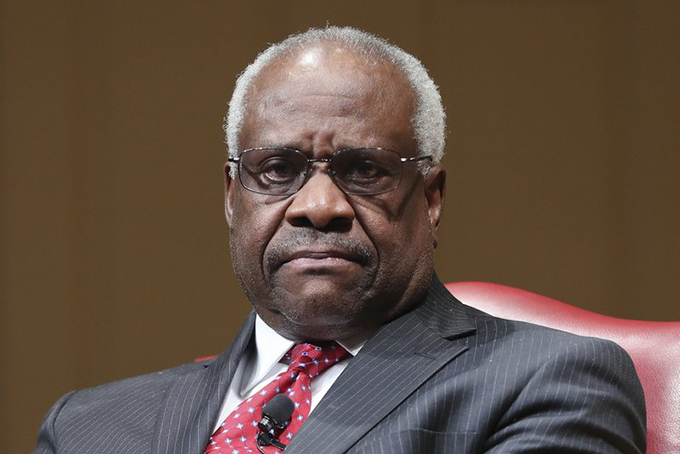There are those who believe that all Black folk “look alike.” Of course, just a cursory glance at the vast panorama of hues, heights and hairstyles that can be seen within the African diaspora dispel such absurd notions.
Similarly, and just as incorrect, there are those who believe that all Black folk “think alike.”
But if you believe that hype, we suggest you spend a few hours in any of D.C.’s more popular barber shops, beauty parlors or houses of worship frequented by African Americans and you’ll soon see that Black perceptions are varied and complex.
These stereotypes which minimize the diversity of the Black community have become relevant given the latest controversy surrounding Supreme Court Justice Clarence Thomas. On Friday, May 10, during a judicial conference on the Gulf Coast, Thomas lashed out at his critics, denouncing the public scrutiny that he and his family have faced over the past year.
To be fair to Thomas, who is now the oldest and longest-serving member on the Court, it was obvious from the moment that he was nominated by President George W. Bush in 1991 to succeed social justice icon Thurgood Marshall, that Brother Clarence had some mighty big shoes to fill.
For more liberal-minded Black people, the bitter confirmation hearings for Thomas that centered on an accusation that he had sexually harassed one of his subordinates, Anita Hill, served as a foreshadowing of what was to come – Thomas had no intention of continuing the tradition of thought and decorum established by our nation’s first Black Supreme Court justice, Thurgood Marshall.
Thomas would be confirmed, albeit by one of the narrowest margins ever recorded, and has remained a staunch and seemingly stoic Black conservative since joining the Court in October 1991 as confirmed by both his rare public statements and his rulings from the bench.
But because all Blacks neither look nor think alike, it stands to reason that Thomas has a fan base who are satisfied with his accomplishments since becoming an associate justice just as there are others who have few reasons to applaud what he has done.
In remarks shared by Justice Brett Kavanaugh who also attended last Friday’s judicial conference, Kavanaugh said consistency, transparency and mutual respect serve as the keys to improving public trust in the judiciary at a time when support for the Supreme Court has dropped precipitously. He added that judges and Supreme Court justices must explain their interpretation of the law in clear and concise terms.
Meanwhile, Thomas, commenting on the target that has been on his back since news surfaced last year of how he has benefited from travel and real estate deals financially fronted by one of the justice’s GOP donors, described the public’s assault as “nastiness” and “lies.”
Thomas has the right to his opinion. But given Kavanaugh’s reasonable assessment of the things he and his colleagues need to consider and on which they should focus, if they want to regain a greater percentage of the public’s support, then Thomas has served as the source of his own problems.
The longtime justice has consistently faced harsh questions and criticism about many of his judicial decisions – criticism that has been neither arbitrary or capricious. Figuratively speaking, it’s safe to say that Thurgood Marshall must be shaking his head in wonder.
In addition, Thomas’ explanations for his rulings have sometimes lacked the clarity and conciseness which Kavanaugh said must be supplied. Further, with Thomas routinely accepting lavish gifts from wealthy friends and by refusing to recuse himself from cases related to the 2020 election because of his wife’s involvement with efforts to block President Biden’s victory, Thomas has placed himself squarely in the hot seat.
People in Washington, D.C. may “pride themselves on being awful,” as Thomas noted, but given his refusal to be transparent in his dealings, both personal or professional, he appears to believe that he has special rights and privileges.
Sorry, Clarence – you do not. No one – not the president, not members of Congress and not even a Supreme Court justice – is above the law. At least, that’s what the Constitution tells us.
Reprinted from the Washington Informer
